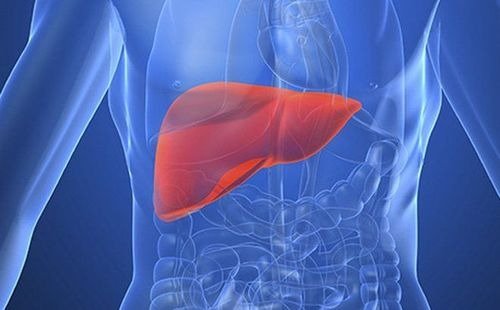The SGOT test, also known as the Serum Glutamic-Oxaloacetic Transaminase test, measures the SGOT enzyme level in your blood. This enzyme is found in your liver, heart, and other tissues. Doctors use this test to check for liver and heart conditions. Understanding its purpose, process, and significance can help you monitor your health effectively.
What is the SGOT Test?
The SGOT test measures the levels of the SGOT enzyme in the blood.
- High Levels: May indicate liver damage, heart disease, or other medical issues.
- Normal Range: Typically between 8 and 45 units per liter of blood.
Why is the SGOT Test Important?
This test helps diagnose or monitor conditions such as:
- Liver Diseases: Detects hepatitis, cirrhosis, or fatty liver.
- Heart Problems: Identifies heart attacks or other cardiac issues.
- Muscle Disorders: Monitors muscle injuries or diseases.
- Medication Side Effects: Checks liver function in people on long-term medications.
Symptoms Requiring an SGOT Test
Doctors may recommend an SGOT test if you experience:
- Fatigue or weakness
- Yellowing of the skin or eyes (jaundice)
- Abdominal pain or swelling
- Dark urine or pale stool
- Nausea or vomiting
- Rapid heart rate or chest pain
How is the SGOT Test Performed?
-
Preparation:
- Fasting is not usually required.
- Inform your doctor about any medications you are taking.
-
Procedure:
- A small blood sample is taken from a vein in your arm.
- The process takes a few minutes and is usually painless.
-
Results:
- Reports are typically available within 24 hours.
- Results are analyzed alongside other tests like SGPT for accurate diagnosis.
Conditions Associated with High SGOT Levels
-
Liver Disorders:
- Includes hepatitis, alcoholic liver disease, and liver cirrhosis.
- SGOT levels are often elevated when the liver is inflamed or damaged.
-
Heart Diseases:
- High SGOT levels can occur after a heart attack.
- It helps identify damage to the heart muscles.
-
Pancreatitis:
- SGOT levels may rise due to inflammation of the pancreas.
-
Muscle Injuries:
- Includes conditions like muscular dystrophy or severe physical trauma.
-
Other Conditions:
- Kidney disease, certain infections, or bile duct blockages can also increase SGOT levels.
Benefits of the SGOT Test
-
Early Detection:
- Identifies potential health issues before they become severe.
-
Accurate Monitoring:
- Tracks the progress of existing conditions.
-
Informs Treatment Plans:
- Helps doctors prescribe the right medications or lifestyle changes.
-
Prevents Complications:
- Timely intervention reduces the risk of severe liver or heart damage.
Who Should Take the SGOT Test?
-
Individuals with Liver Disease:
- Regular testing is crucial for monitoring liver health.
-
People on Long-term Medications:
- Certain drugs can affect liver function.
-
Those with a Family History of Liver or Heart Issues:
- Early testing can help manage inherited conditions.
-
Athletes:
- Checks for muscle injuries or overuse.
Normal and Abnormal SGOT Levels
-
Normal Levels:
- Men: 10–40 units per liter
- Women: 9–32 units per liter
-
Abnormal Levels:
- High SGOT levels may indicate tissue damage.
- Low SGOT levels are less common but may signal vitamin deficiencies.
How to Maintain Healthy SGOT Levels
-
Follow a Balanced Diet:
- Include fruits, vegetables, and whole grains.
- Avoid fatty, sugary, and processed foods.
-
Limit Alcohol Consumption:
- Alcohol can damage liver cells and raise SGOT levels.
-
Exercise Regularly:
- Physical activity improves overall health and reduces liver fat.
-
Avoid Over-the-Counter Drugs:
- Some medications can strain the liver.
-
Stay Hydrated:
- Drinking water helps in flushing out toxins.
What Other Tests are Conducted Alongside SGOT?
-
SGPT Test:
- Measures the Serum Glutamic-Pyruvic Transaminase enzyme.
-
Bilirubin Test:
- Checks for jaundice or bile duct blockages.
-
Complete Blood Count (CBC):
- Monitors overall blood health.
-
Ultrasound or CT Scans:
- Helps visualize liver and heart structures.
Limitations of the SGOT Test
While the SGOT test provides valuable information, it cannot identify the exact cause of abnormal levels. Additional tests may be required for a detailed diagnosis.
Cost of SGOT Test in India
The cost varies depending on the lab and location. On average, it ranges between ₹200 to ₹800. Many labs offer packages that include SGOT along with other liver function tests.
Why is SGOT Tested with SGPT?
The combination of SGOT and SGPT tests provides a clearer picture of liver health. High levels of both enzymes often indicate liver inflammation or damage.
What to Do After Abnormal SGOT Results?
-
Consult Your Doctor:
- Discuss potential causes and treatment options.
-
Follow Prescribed Medications:
- Take medicines as directed to manage conditions.
-
Adopt a Healthier Lifestyle:
- Focus on diet, exercise, and stress reduction.
-
Undergo Further Testing:
- Additional tests may be needed to pinpoint the issue.
FAQs on SGOT Test
1. Is fasting required for the SGOT test?
No, fasting is usually not needed.
2. How long does the test take?
The blood sample collection takes about 5–10 minutes.
3. Can I take the test at home?
Yes, many labs offer home collection services.
4. Are there any side effects?
The test is safe, with minor risks like bruising at the puncture site.
Conclusion
The SGOT test is a simple yet effective way to monitor liver and heart health. Regular testing ensures timely detection and treatment of various conditions. Whether for routine checkups or specific symptoms, this test plays a crucial role in maintaining overall well-being. Stay proactive and schedule your SGOT test if needed.
https://empireadda.com/category/health/



